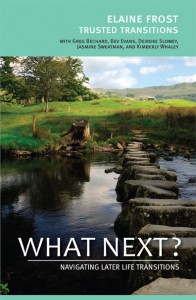Moving Seniors and Minimizing Stress
If you have had the experience of moving older family members to a new home you have seen first hand how much stress these moves can cause. I have recently become aware of the labelling of this phenomenon as Relocation Stress Syndrome, or transfer trauma. It is thought that RSS can affect behaviour, mood, morbidity and even mortality. Symptoms can include sleeplessness, anxiety, depression and disorientation. If the senior already suffers from dementia, physical frailty or sensory impairment there can be additional confusion and agitation. The effects can be worse if the move is not being made by choice, and may still exist even if the senior had made a willing decision.
There are things that you can do to try to minimize Relocation Stress Syndrome.
1. Start the planning and discussion phase as early as possible. This will allow time to uncover and think through your choices, and not feel pressured into making hasty decisions.
2. Allow the senior to participate in the decision and planning process. Try as much as possible to honour their preferences and address their concerns.
3. Minimize the amount of time that their regular routines are disrupted. We try to do the packing and moving in a two day timeframe. It may be advisable to have them visit family or friends during that period.
4. Set up the new home as much as possible to replicate the layout and feel of the old home.
5. If you have amassed a team (family, friends and professionals) to make the move happen, communication throughout the process is critical. Surprises will only increase the stress of the move.
As Senior Move Managers we have years of experience helping families deal with the stress of a later life move. Contact us to set up a no charge consultation to discuss your individual situation.

